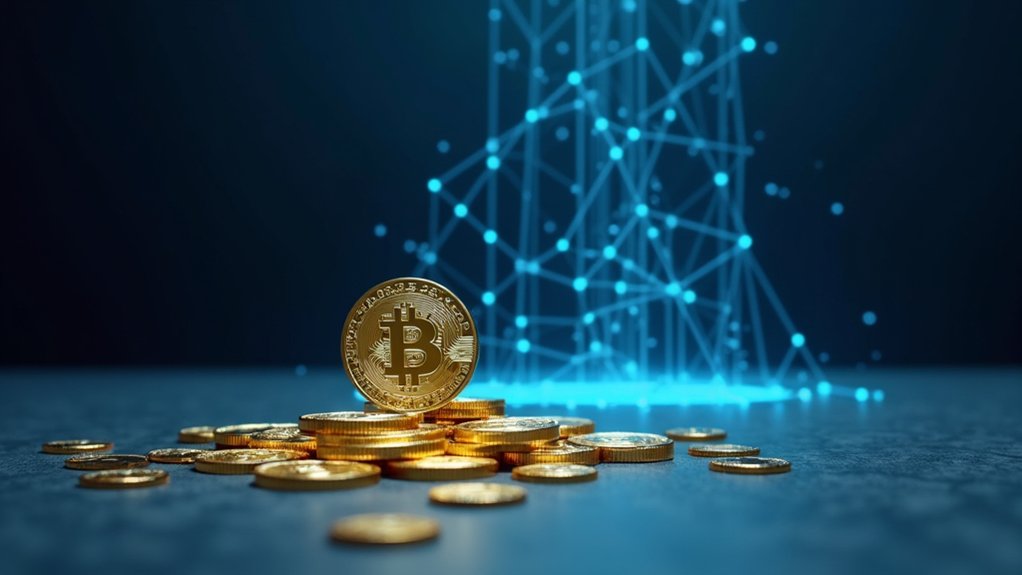Governance tokens, touted as the cornerstone of decentralized blockchain systems, promise community control, yet they often cloak a brutal plutocracy where wealth trumps wisdom. They grant voting rights to shape protocols, but—let’s face it—bigger wallets dominate, sidelining smaller holders in a sham of democratization. Is this truly revolutionary, or just inequality in disguise? Their transparency via smart contracts clashes with off-chain manipulations, demanding scrutiny. Stick around to uncover the deeper flaws.

The so-called “Governance Tokens,” heralded as the bedrock of decentralized power, dangle a seductive promise of control in blockchain ecosystems, but let’s not drink the Kool-Aid just yet. Beneath the glossy veneer of community empowerment lies a system where Decentralized Voting often mirrors old-school plutocracy, with voting power tied to token quantity, not individual merit. Bigger wallets, bigger say—how’s that for revolutionary? The Token Utility might dazzle, granting rights to shape protocols or dApps, but it’s a double-edged sword, tempting users with influence while concentrating clout among the crypto elite. Is this truly the democratization we were promised, or just a slick rebrand of inequality?
Dig deeper, and the flaws glare brighter. These tokens, meant to distribute control from founders to a global user base, often see whales—those hoarding massive stacks—steering decisions like treasury spending or feature rollouts. Sure, smart contracts execute votes on-chain, supposedly tamper-proof, but when off-chain actions creep in, who’s really accountable? The system brags about preventing single-entity dominance, yet a handful of fat-cat holders can sway entire DAOs, those darling decentralized autonomous organizations. Transparency? Automated governance? Sounds noble, until you realize the average Joe with a few tokens gets drowned out. Moreover, the rules of these systems are often enforced through smart contracts, ensuring automated decision-making but still raising questions about accessibility for smaller stakeholders. It’s also worth noting that different voting models, like quadratic voting, aim to balance influence by reducing the power of large token holders.
And don’t get started on value—oh, the irony! Limited supply spikes demand, sure, as seen with Uniswap’s UNI or MakerDAO’s MKR, but does that reflect genuine community strength or just speculative greed? Governance participation might boost adoption, yet economic perks often lure holders more than civic duty. Additionally, these tokens incentivize active involvement by granting voting rights to influence critical project directions. So, while tokens offer a stake in shaping blockchain futures, let’s not pretend they’re flawless. Strip away the hype, and what’s left? A system begging for scrutiny, not blind worship. Wake up, and question it.
Frequently Asked Questions
How Are Governance Tokens Created?
The process of crafting governance tokens involves a defined Creation Mechanism, ensuring tokens are generated systematically. Through an Issuance Protocol, they are distributed on chosen blockchain platforms, aligning with strategic design and tokenomics goals.
Who Can Own Governance Tokens?
Regarding who can own governance tokens, Global Ownership allows anyone worldwide to acquire them through purchase or rewards. Decentralized Holders, including individuals, investors, and DAO members, participate freely in blockchain governance ecosystems.
Are Governance Tokens Taxable?
The taxability of certain digital assets raises important concerns. Tax implications often include capital gains when sold or exchanged, while reporting requirements mandate accurate documentation to guarantee compliance with varying jurisdictional tax laws.
Can Governance Tokens Be Traded?
The tradability of governance tokens is widely recognized, with many eligible for exchange on various platforms. Their Trading Eligibility supports active markets, while Liquidity Strategies provide flexibility for investors seeking to buy or sell.
What Risks Do Governance Tokens Carry?
Examining the risks of governance tokens, one finds significant concerns like Manipulation Risks, where votes can be swayed or bought. Additionally, Regulatory Hurdles pose challenges, as changing rules may attract unwanted legal scrutiny.









